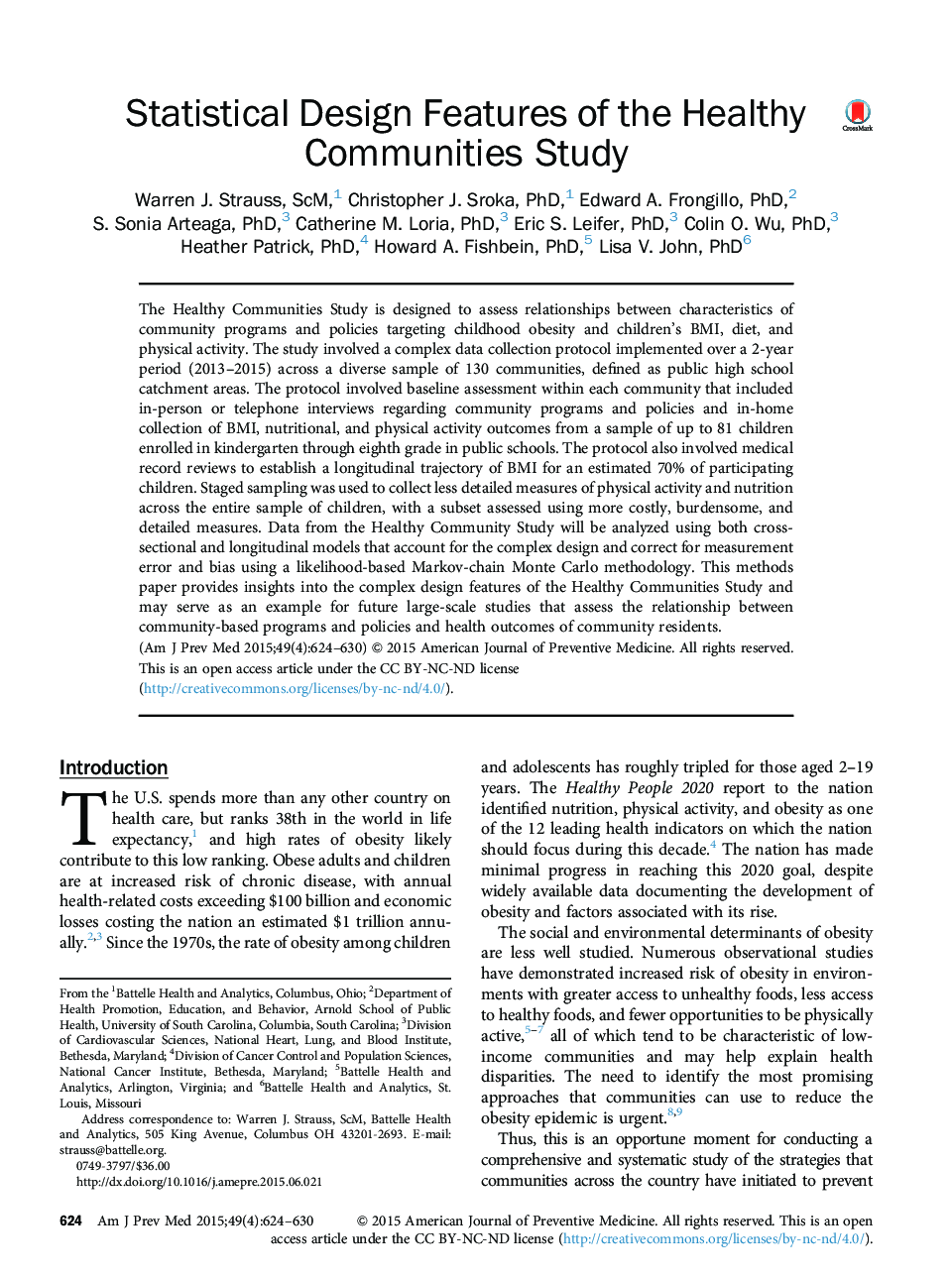| Article ID | Journal | Published Year | Pages | File Type |
|---|---|---|---|---|
| 6237699 | American Journal of Preventive Medicine | 2015 | 7 Pages |
The Healthy Communities Study is designed to assess relationships between characteristics of community programs and policies targeting childhood obesity and children's BMI, diet, and physical activity. The study involved a complex data collection protocol implemented over a 2-year period (2013-2015) across a diverse sample of 130 communities, defined as public high school catchment areas. The protocol involved baseline assessment within each community that included in-person or telephone interviews regarding community programs and policies and in-home collection of BMI, nutritional, and physical activity outcomes from a sample of up to 81 children enrolled in kindergarten through eighth grade in public schools. The protocol also involved medical record reviews to establish a longitudinal trajectory of BMI for an estimated 70% of participating children. Staged sampling was used to collect less detailed measures of physical activity and nutrition across the entire sample of children, with a subset assessed using more costly, burdensome, and detailed measures. Data from the Healthy Community Study will be analyzed using both cross-sectional and longitudinal models that account for the complex design and correct for measurement error and bias using a likelihood-based Markov-chain Monte Carlo methodology. This methods paper provides insights into the complex design features of the Healthy Communities Study and may serve as an example for future large-scale studies that assess the relationship between community-based programs and policies and health outcomes of community residents.
